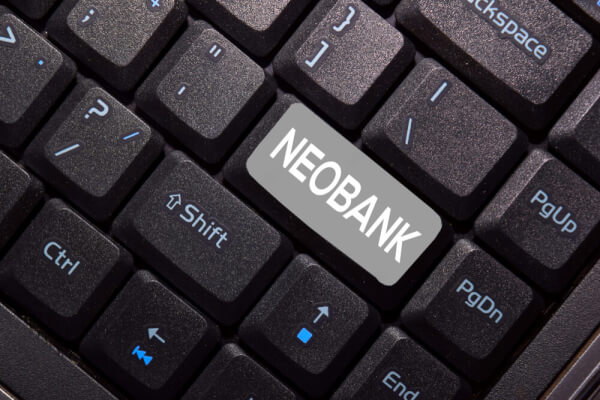Wells Fargo Initiate Business Checking Review: The Best Choice for Your Business?
This Wells Fargo Initiate Business Checking review will cover all you need to decide if it's the best choice for your business!

Dubai’s economy is on the rise these days with real estate improvements and an increased tourist demand. With that, it seems banks are more willing ever to lend.
With the Emirates’ financial outlook appearing so strong, it’s no surprise more and more foreign businesses are looking to incorporate or open offshore bank accounts in the UAE.
While the overall safety of banking in Dubai is attractive, opening a bank account in the emirate as an international company can present some hurdles. However, the process isn’t impossible, and many businesses start banking in Dubai every day.
Creating a permanent establishment
Establishing a branch office
Creating an entity in one of the UAE’s free zones
Creating a civil company
Entering a commercial agency agreement
Under the UAE Commercial Companies Law, companies established in any of the emirate’s must have at least one UAE national partner who holds a minimum of 51% of the company’s capital. However, some businesses may be exempted from the law, including those in the oil and gas industry, companies that produce electricity and gas, and companies involved in water treatment and distribution. Companies established in the free zone are also exempt from the 51% rule, as long as that zone has its own provisions for regulating the company.
General Partnerships
Limited Partnerships
Joint Participation Ventures
Public Joint Stock Companies
Private Joint Stock Companies
Limited Liability Companies
Partnerships Limited with Shares
Companies wishing to establish a presence in Dubai may also create a branch office, which carries the same legal identity as the parent company. Branch offices may perform contracts or conduct other activities, as specified in its individual license.
The UAE is not among the countries that participate in the Hague Convention of 1961-- meaning, the UAE does not recognize Apostille. Because that authentication is not valid in Dubai, the first step is having all necessary company documents certified at the Consulate of the Emirates in the country where the company is registered. Next, the documents must be certified by the UAE Ministry of Foreign Affairs. Certification at the UAE MFA costs roughly AED 2,000 per document, meaning the total cost of the certification process often costs $3000 USD or more. Beyond the price tag, the certification process can often take months.
Long story short-- a foreign entity may open a bank account in Dubai, however, incorporating in the UAE is often a much easier and more cost effective solution.
The requirements for opening an account vary from bank to bank, but the presence of a major shareholder or director is typically required. Sometimes attorneys can set up accounts on their clients’ behalf, though this is not often the case.
To open an account, the first step is completing an account opening application, which will be supported by detailed company records. That information can include proof of business, like contracts and invoices, as well as information about the company’s clients and suppliers.
Though the list varies between banks, typically the required documents will include:
The passport (with residency visa) of the company’s shareholder representative
Copy of the Emirates ID card of the shareholder representative
Passport copy of the company director
Information about the type of activities on the account
Disclosure of the source of funds
Existing contracts
Reference letters from business partners
Business plan
Full set of certified company incorporation documents
Memorandum and articles
Certificate of incorporation
Shareholders registry
Company extract (from the official companies registry)
Certificate of good standing
Next, the bank will gather background information about the applicant’s management team, including shareholders and directors. The information gathering process will also encompass financial projections.
Last, the bank will conduct an interview with the applicant. Once those stages are complete, the account will be established.
Dubai is home to many international banks, and many local ones. The top local options for opening a corporate account are:
Emirates NBD has more than 300 branches in Dubai alone. Business accounts require a minimum balance of AED 50,000-$300,000, depending on your account package. Account holders will have a dedicated relationship manager, enjoy highly competitive foreign exchange rates, special rates on deposits and investments, and many free or discounted charges on day to day transactions.
Abu Dhabi Commercial Bank allows companies to choose from five account options, with minimum balance requirements ranging from AED 25,000 to AED 1,000,000. Accounts feature multi-currency flexibility, preferential pricing on payment transactions and internet banking, access to 50 branches and 300 ATMS across the UAE, and a dedicated relationship manager.
Mashreq Bank’s two business account options require minimum balances of AED 25,000 and AED 150,000, respectively. Accounts come with discounted remittances, free checkbooks, discounted foreign exchange rates, online business banking, Visa business debit cards, and a preferential tariff the bank’s business financing products.
At United Arab Bank, business accounts are offered in AED as well as multiple foreign currencies. Features also include 10 free teller transactions and one free checkbook. UAB requires a minimum balance of AED 10,000.
A business checking account at First Gulf Bank requires a minimum balance of AED 20,000, but no monthly charges if the company has any banking facility in the bank. Accounts come with a free checkbook, a secure monthly e-statement, free SMS banking alerts, 24/7 access to mobile banking, and unlimited teller transactions at the company’s nearest FGB branch.
The Commercial Bank of Dubai offers account holders a range of business banking products and services. Multiple service delivery platforms offer 24/7 access to bank accounts and funds, as well as useful online business support resources. The bank also offers flexible business financing options, cash flow management services, business insurance products, and business banking relationship managers.
Major foreign banks that open accounts for companies registered in the UAE include:
Standard Chartered Bank
HSBC
Citibank
Barclays
Banking in Dubai is known to be fraught with fees, and it’s always a good idea to get a full list of potential charges before choosing where to open your business bank account.
If you’re planning to transfer money internationally, it’s especially important to keep your eye on foreign transfer fees. Mashreq Bank, for instance, charges AED 60 every time you send money overseas, while Dubai Islamic Bank’s fee is significantly less at AED 25.
However, if you’d like to avoid these international charges at all, consider using Wise to fund your business bank account from overseas. Wise uses the real mid-market exchange rates to convert your money from one currency to another. That means that, unlike a regular bank transfers, there’s no hidden markup on the currency conversion rate. And because Wise receives and sends your money via local bank transfers in both the UAE and overseas, those international fees are cut out entirely.
All in all, opening a business banking account in Dubai should be a fairly a painless process with plenty of options for choosing the right account for your business.
*Please see terms of use and product availability for your region or visit Wise fees and pricing for the most up to date pricing and fee information.
This publication is provided for general information purposes and does not constitute legal, tax or other professional advice from Wise Payments Limited or its subsidiaries and its affiliates, and it is not intended as a substitute for obtaining advice from a financial advisor or any other professional.
We make no representations, warranties or guarantees, whether expressed or implied, that the content in the publication is accurate, complete or up to date.

This Wells Fargo Initiate Business Checking review will cover all you need to decide if it's the best choice for your business!

This Citizens Bank Business Checking review will cover all you need to decide if it's the best choice for your business!

This South State Bank Business Account review will cover all you need to decide if it's the best choice for your business!

Whether you’re paying, receiving, or spending, managing multiple currencies should be the least of your worries. The following multi-currency accounts include n

Want to learn more about the best neobanks for business? We'll go through some of the online business accounts that can help your business operate more...

Looking for the best business account to withdraw to and spend your Airbnb earnings from? Let's go through the top accounts you can use for business.